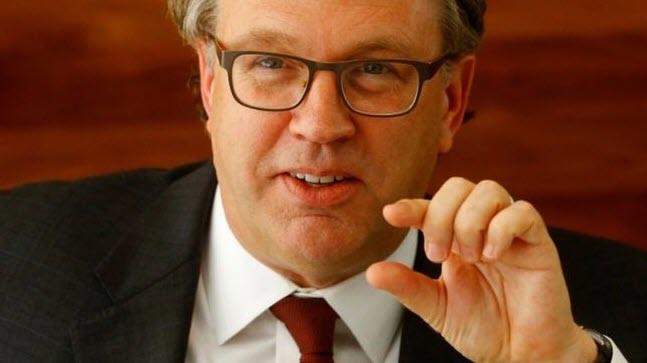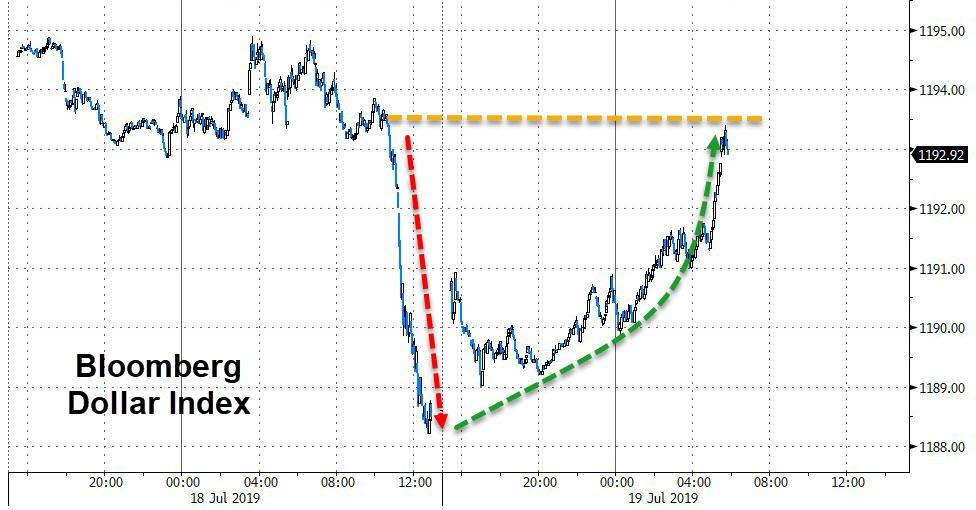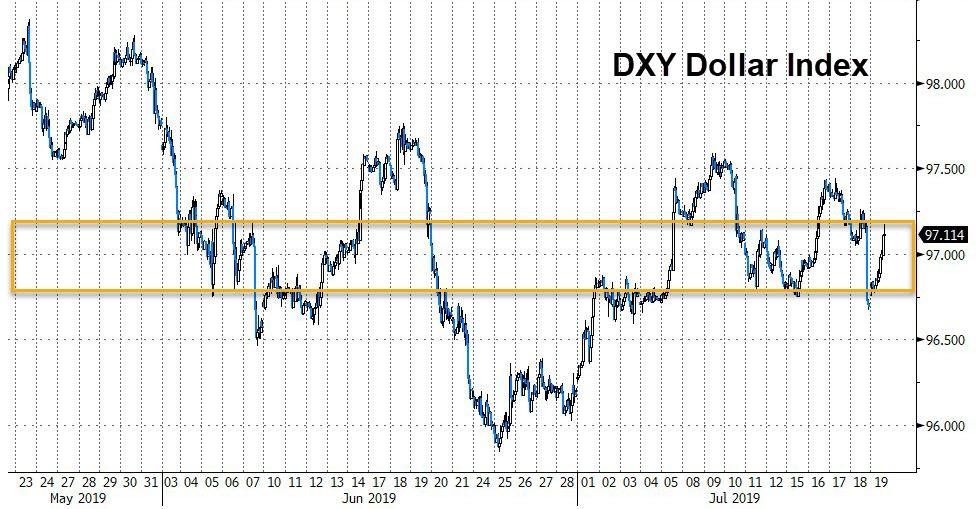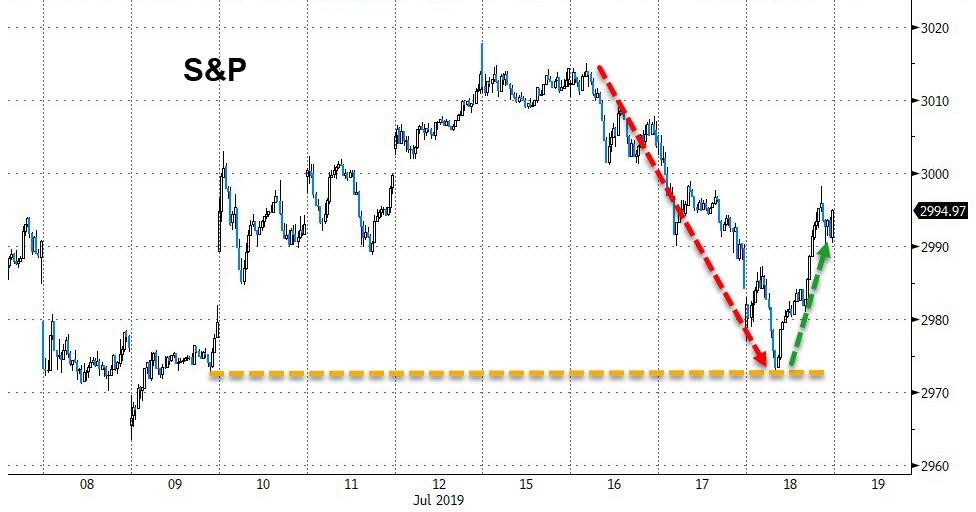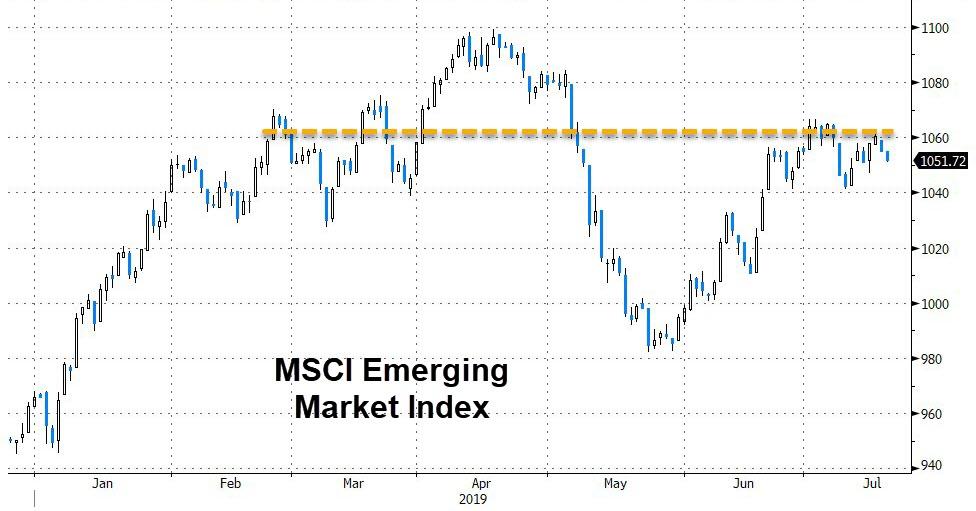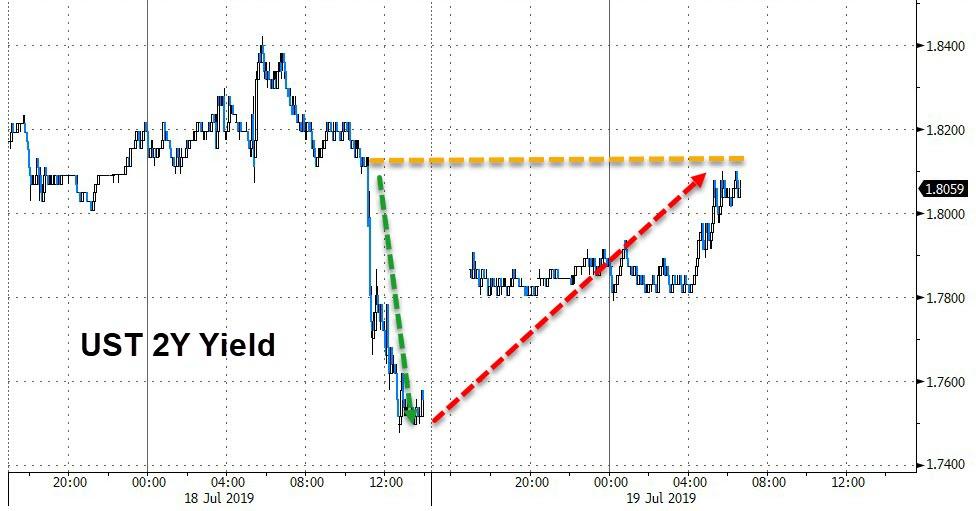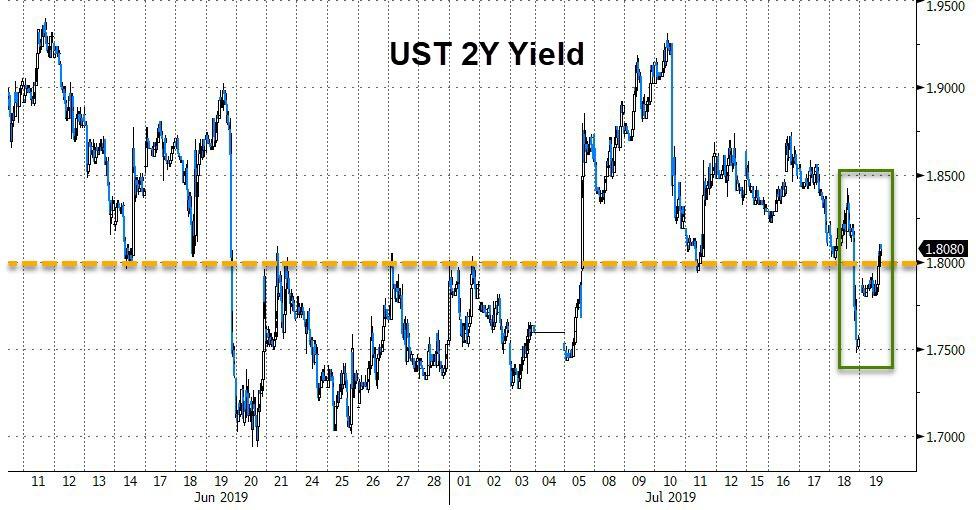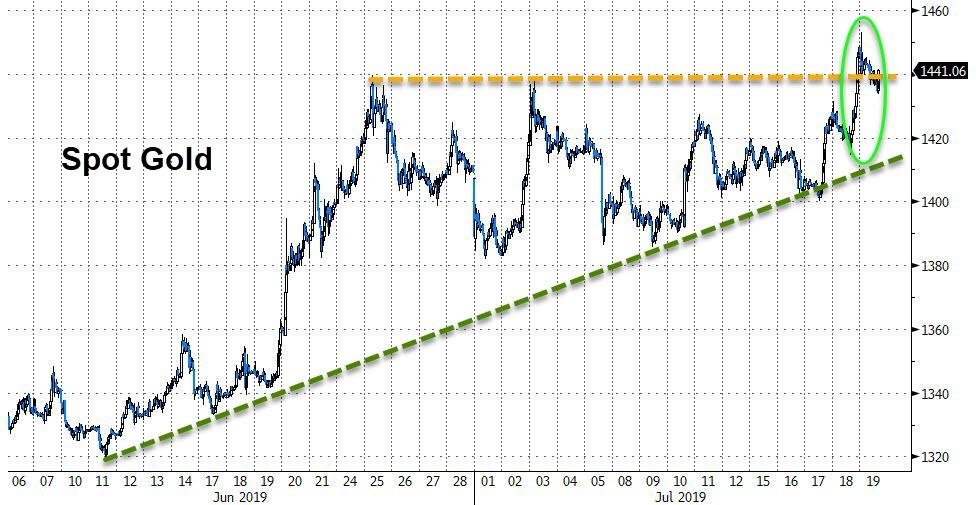NY Fed President John Williams screwed up… or did he? Since he “academically” strawman’d a 50bps rate cut – which the market instantly soaked up, priced-in, and looked for moar – a Fed spokesman (and The Fed’s Jim Bullard) have since desperately walked-back the comments back towards a preference for a 25bps cut.
This has erased the spike in 50bps rate-cut odds (from 35% to 71% and back down to 35%) and retraced the dollar dump that Williams created…
However, as former fund manager and FX trader Richard Breslow, there are important rules governing any sort of effective communication strategy, made all the more important when financial markets are on tenterhooks. One of them is that it’s the responsibility of the speaker to make sure their message was successfully delivered. It’s not on the listener to figure out what, in hindsight, they were meant to hear. Forget that and you are asking for trouble.
Via Bloomberg,
This was one of the first lessons drilled into the heads of people new to a trading floor. And for good reason. Because when it wasn’t observed, things inevitably didn’t end well. And make no mistake, Thursday’s “miscommunication” was perfectly analogous. This wasn’t a case of algorithms gone wild. A lot of very smart people know what they heard. Despite the walk-back, I suspect there remains a number of people who will cling to the notion that where there is smoke, there is fire. Now it remains to be seen what the price tag will be.
It isn’t insignificant that trading volumes were quite high in the Asia session. A lot of interest-rate products changed hands. The early hours of the session saw Treasury volumes running three times normal. It wasn’t just U.S. securities trying to price and reprice themselves. Euribor futures traded at the same time at five times average volumes.
Heading into the weekly close, it’s worth taking a look at various assets to see if there is any lasting technical damage. Although, trading may be sloppy Friday, so I wouldn’t sharpen any pencils too finely. What may complicate matters further is that traders will need to decide whether to reestablish positions that were stopped out. And whether to stick with or head for the hills on new ones. It may not end up being as quiet a day as one would normally expect.
Foreign exchange should have the least difficulty righting itself. The Dollar Index held where it had to. And the euro has so far failed miserably in attempting a topside run. After all, the ECB is unlikely to let the possibility of a more dovish than expected FOMC go to waste. DXY will look very different outside of a 96.80 to 97.15 range. Both doable, and it probably won’t require giving it more room than that to get the lay of the land.
Equities have proven once again the perils of investors trying to stay short. But nothing has really changed for them. S&P 500 would need to get back above this week’s highs or back below Wednesday’s low to really change anyone’s opinion. Although that is probably giving it too much room. At least on the downside.
Emerging-market currencies are more straightforward. And relevant because Thursday’s action put them back into vogue. The MSCI Emerging Market Index has so far topped out almost exactly where it did four times earlier this year. That’s the level to watch. Back below the week’s lows and they too will look different. But, in truth, they don’t look as interesting as they sound.
Ten-year Treasuries have stayed safely within no-man’s land. And none of the very widely agreed upon levels have been tested. The two-year pivot at 1.80% isn’t too far away.
Twos are messy and require a fundamental view to go along with any trades
With gold, traders keep giving up location and paying the price for it. There are lots of bids below and plenty of supply above. Fading extremes is the only way to give yourself a chance of sticking with a position.
As far as Fed funds futures are concerned, I’m not ready to touch them with a 10-foot pole.
via ZeroHedge News https://ift.tt/2SrE95j Tyler Durden
